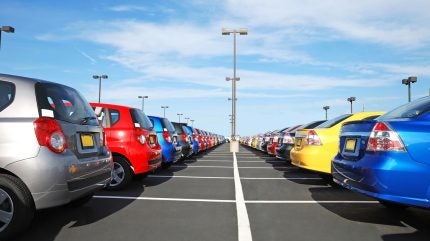
US President Donald Trump has reportedly said that Japan is set to begin importing Ford’s F-150 pickup trucks, signalling a potential misunderstanding between the two nations regarding the specifics of a trade agreement proclaimed last month, according to Bloomberg.
Tokyo’s chief negotiator, Ryosei Akazawa, embarked on a trip to Washington with the intention of urging the Trump administration to honour its commitment to lower tariffs on automobiles and auto parts to 15% from the current 27.5%.

Discover B2B Marketing That Performs
Combine business intelligence and editorial excellence to reach engaged professionals across 36 leading media platforms.
Akazawa told reporters, “It’s worth noting that the US-UK agreement took 54 days to be implemented,” when discussing the anticipated reduction in auto tariffs upon his arrival in Washington.
Speaking of Japan in a phone interview broadcast by CNBC, Trump stated: “They’re taking our cars. They’re taking the very beautiful Ford F-150, which does very well. And I’m sure we’ll do very well there and other things that do very well here, will also do well there.”
The trade deal between the nations has been shrouded in uncertainty, raising concerns in Japan about its execution, especially concerning autos.
The Trump administration’s narrative on trade agreements has frequently been at odds with that of its trade partners, leading to questions about the agreements’ effectiveness.
Currently, the US imposes a 27.5% tariff on Japanese autos, a figure that combines an earlier 2.5% rate with a new 25% introduced by Trump.
Although a reduction to 15% would alleviate some pressure, this rate would still affect the sector that is central to the Japanese economy.
Optimism in Asian markets was evident as Akazawa made his ninth visit to the US, with Japan’s Topix Index climbing 1%, buoyed by gains from automakers such as Toyota Motor.
A point of contention remains whether the proposed 15% tariff will be an additional charge on top of current tariffs or if all current levies will be standardised to 15%, marking another potential area of misunderstanding between the two countries’ interpretations of the trade deal.
Despite Akazawa’s assertion that tariffs will be capped at 15% and not added to existing rates, a recent executive order suggested that the 15% reduction would only apply to the European Union, not to Japan.
Trump has often expressed frustration over the lack of popularity of US cars in Japan, but many experts believe this is due to the absence of models suited to the Japanese market, rather than trade barriers.
The Ford F-150 mentioned by Trump may limit its practicality on Japan’s narrower roads, where many are less than four metres wide for two lanes, as per government data from 2012.
In the CNBC interview, Trump likened the $550bn investment package agreed upon with Japan in the trade deal to a “signing bonus”.
However, the Japanese have clarified that only a small fraction of this amount will constitute actual investment, with the remainder being loans and loan guarantees.
Japan’s Prime Minister Shigeru Ishiba has stated that these investments, driven by private companies, will serve the interests of both countries.






